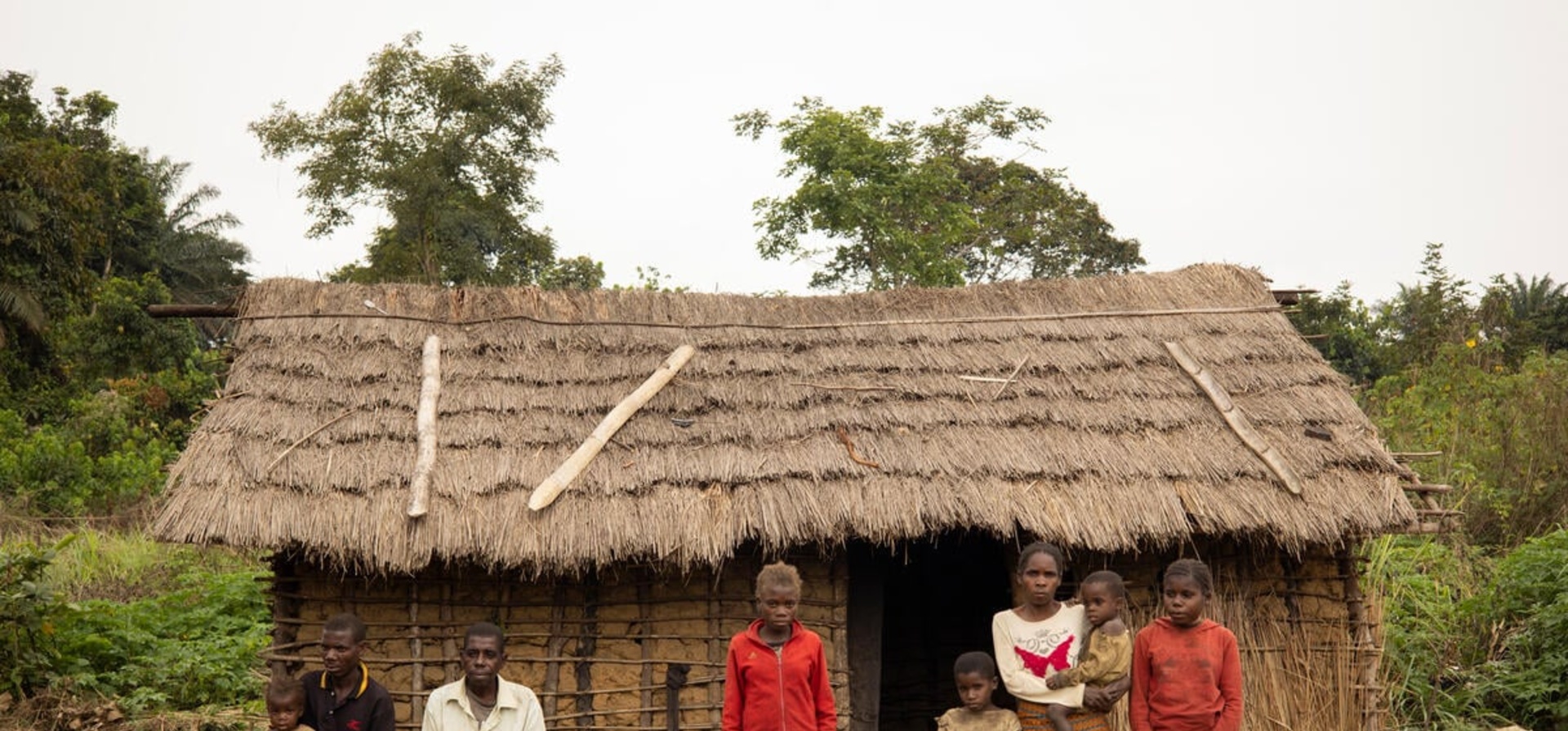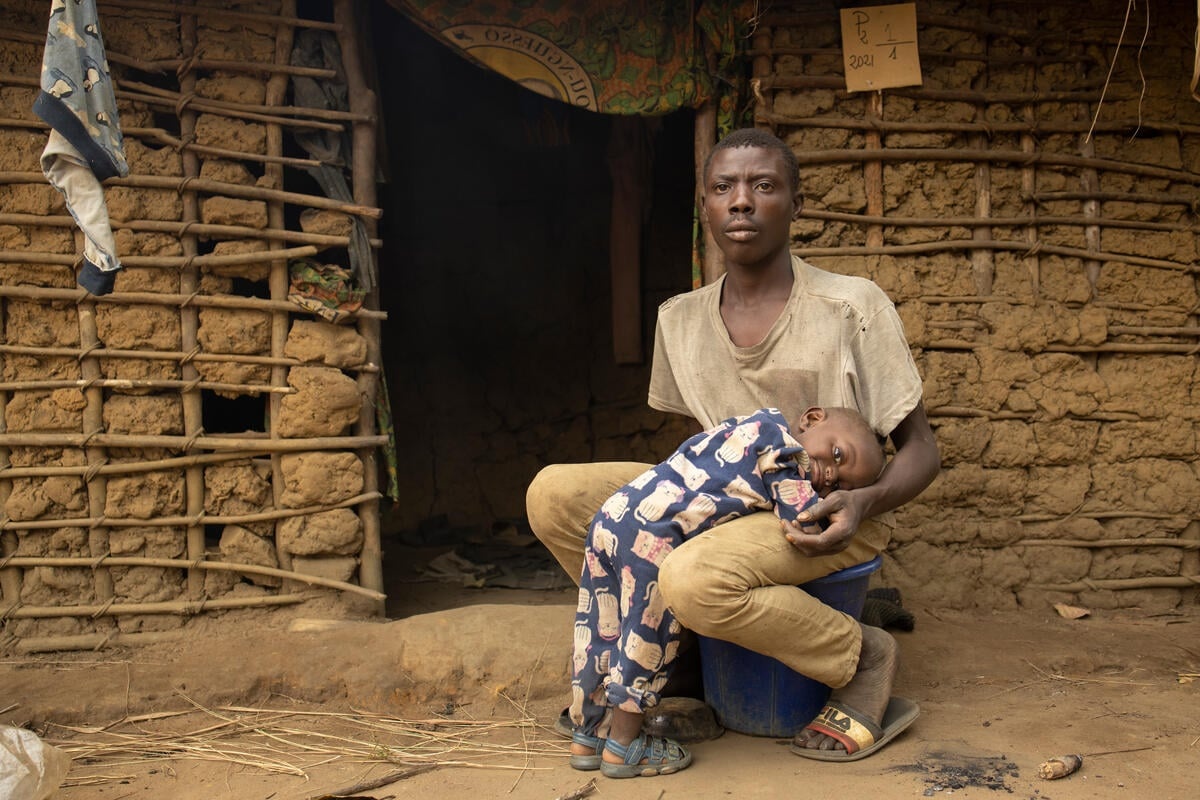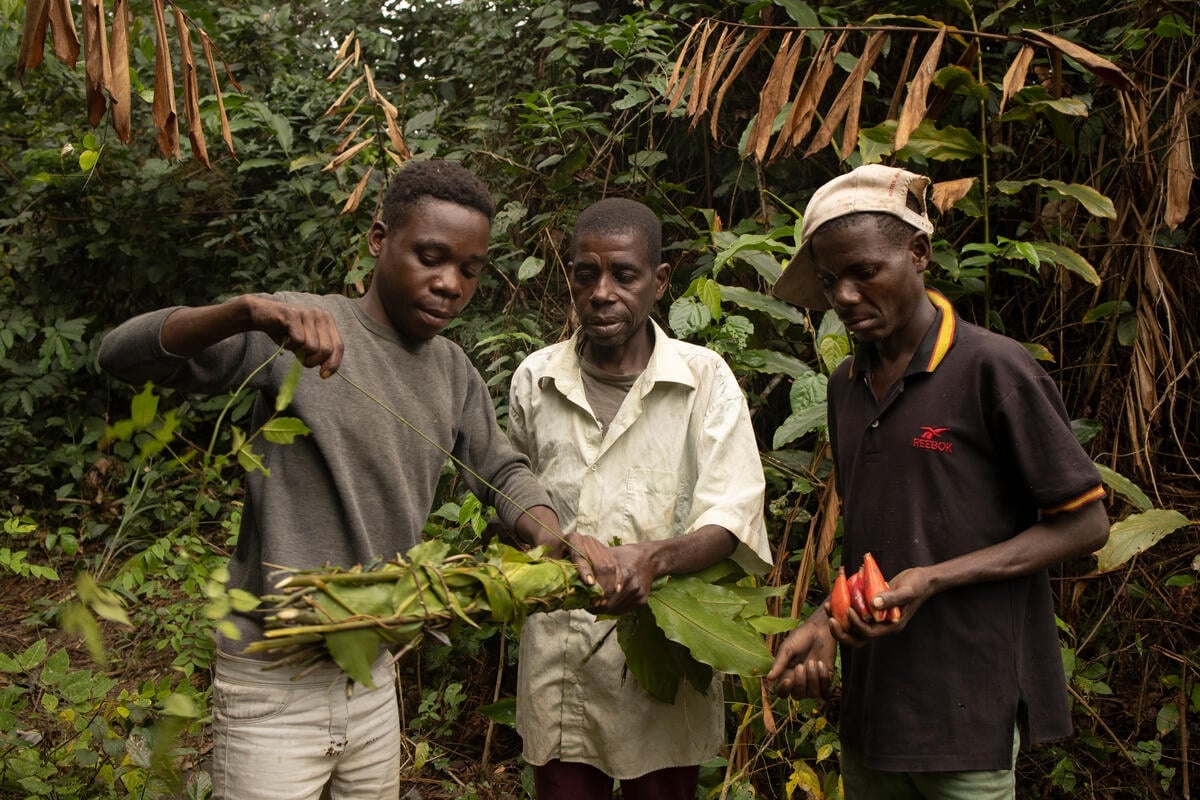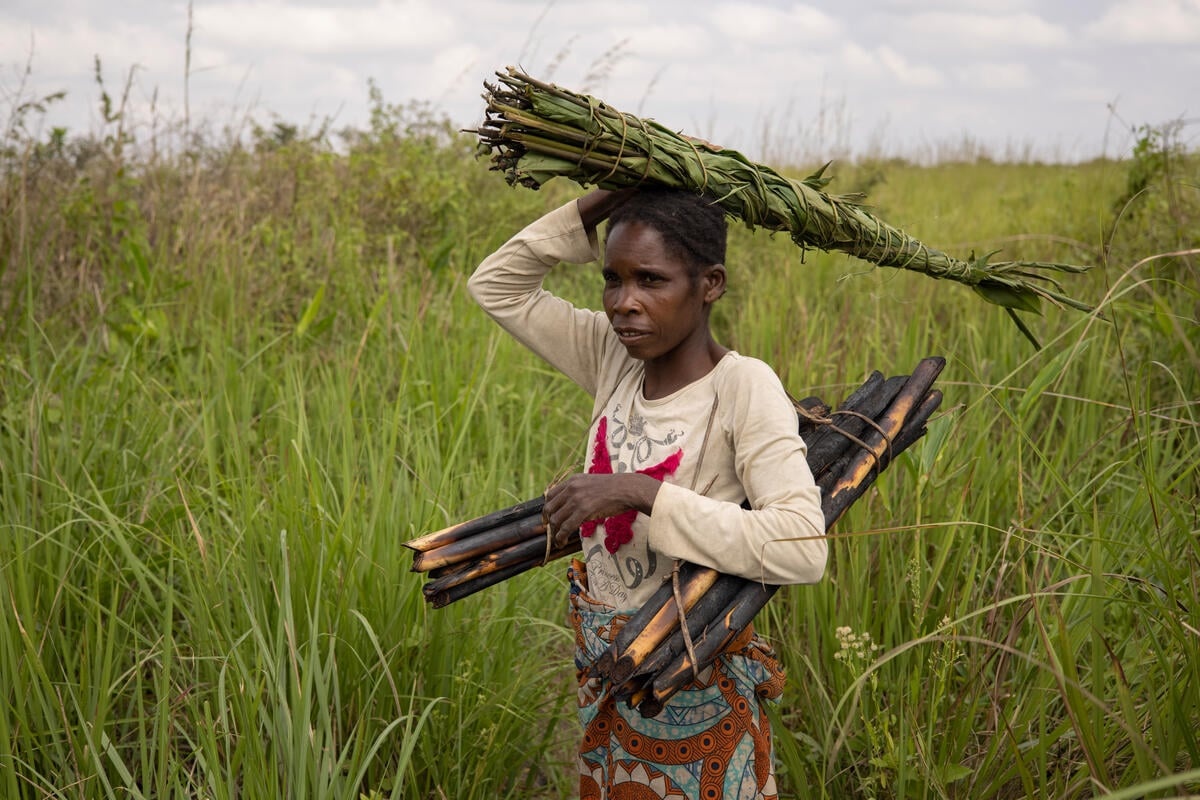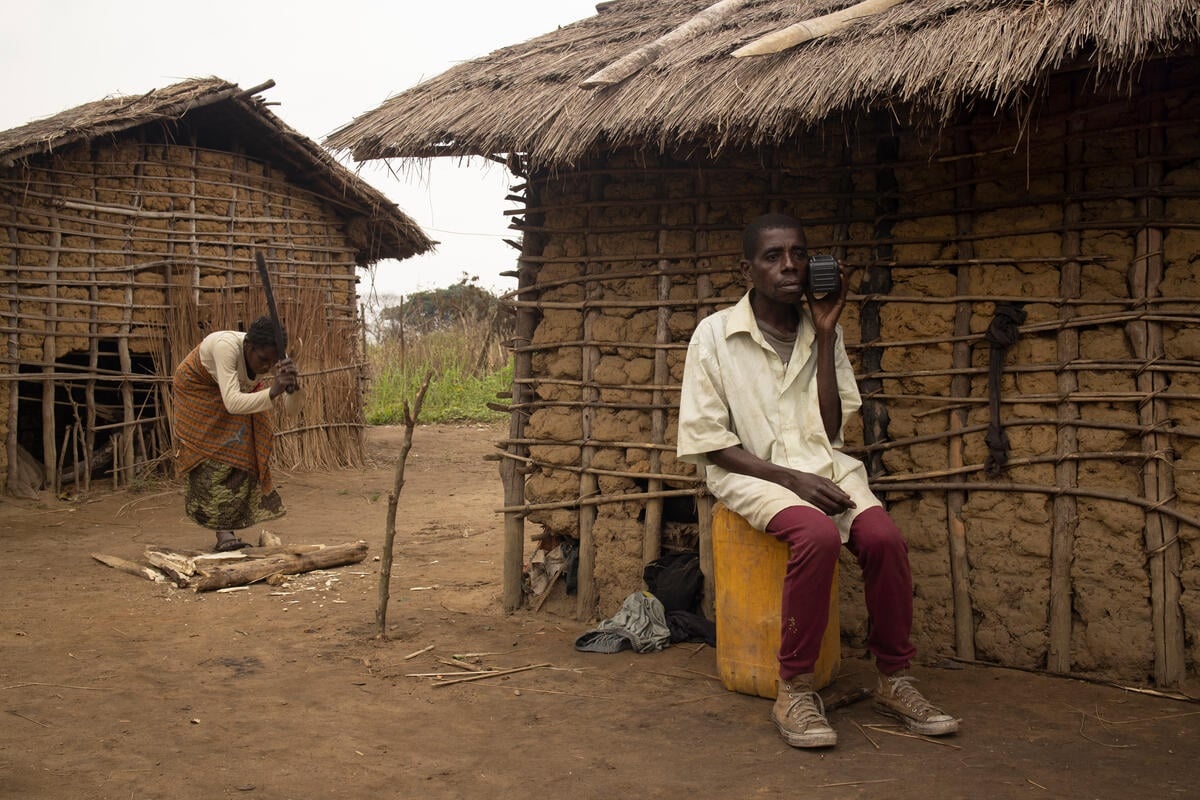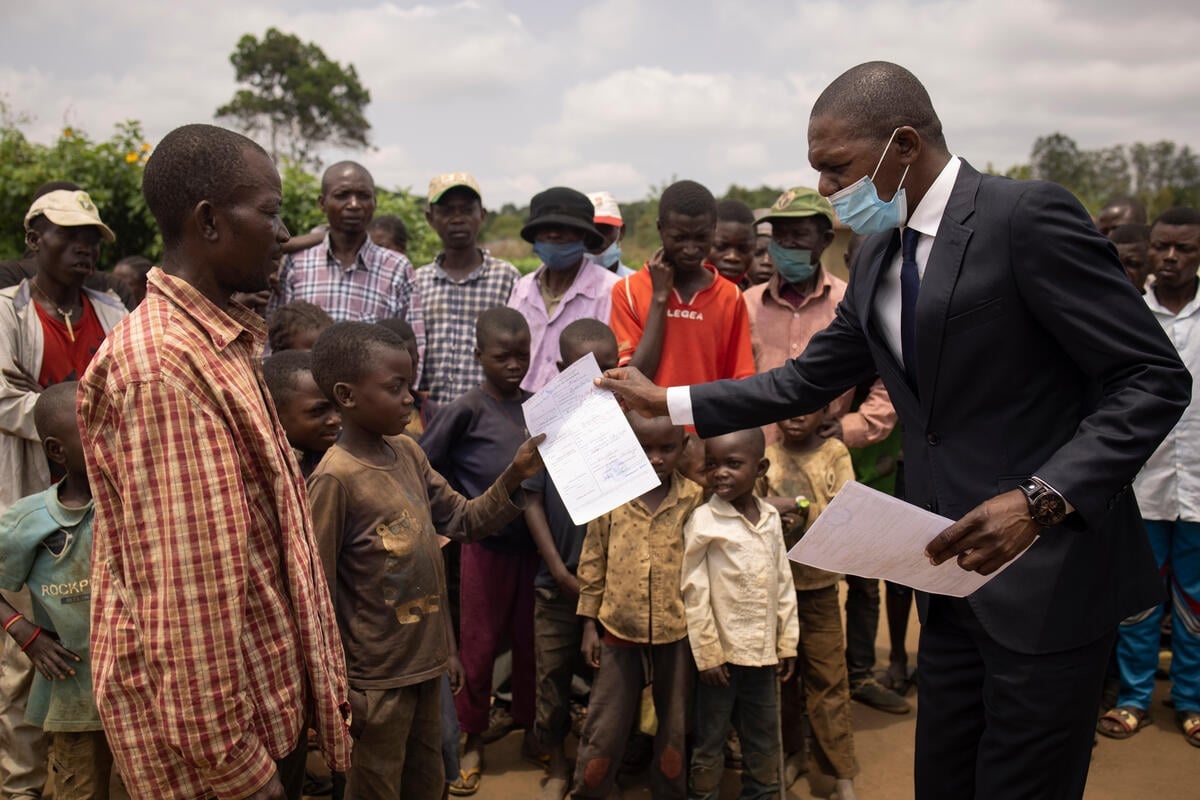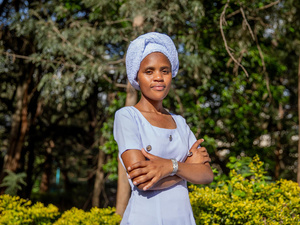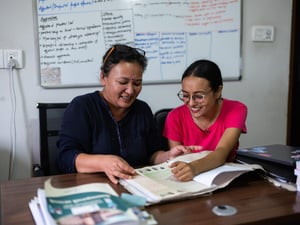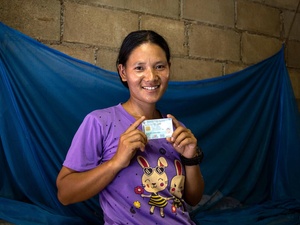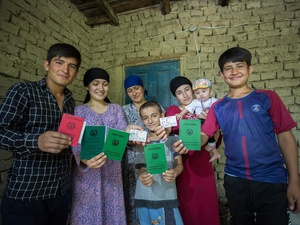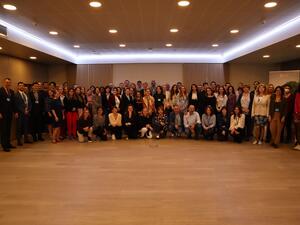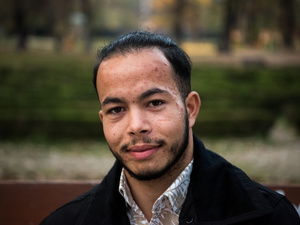Birth registration drive brings Congo's indigenous in from the shadows
Marie does not know her age but looks to be in her late thirties. She has never had a birth certificate nor any other identity document. She has never been to school, either. She lives in poverty with her six children and her husband Damas in Vono, a small village in the Republic of the Congo’s Plateaux region, 40 kilometres away from Djambala, the main town.
“I would love to go look for a job in Djambala, as a maid for instance, and be able to support my family more. But you need to have papers to get hired,” she says in a defeated voice. Like Marie, most of the indigenous hunter-gatherers in the village do not have birth certificates – the first legal proof of one’s existence.
For Marie, every day is about survival. She and Damas walk for kilometres to look for cassava leaves in the forest, as well as asparagus, mushrooms and sugar cane. With the little they manage to sell, they sometimes buy some meat, oil and salt for the children. But other times, the family go hungry.
“We are in a very, very vulnerable situation. I’m struggling every day to get food for the family. Every single day. But my children give me the energy to fight for them,” she says in a shaky voice. Marie could not enrol her kids in school because they lacked the birth certificates required in the Congo and many other African countries to register. Instead, they trek to the forest with her to forage for food and firewood.
“We are in a very, very vulnerable situation. I’m struggling every day to get food for the family."
“They walk barefoot, including at the school they attended for three days, before being kicked out for lack of identity documents,” she says.
Once back at their home, Marie completes her daily round of chores that also include cooking and cleaning the house. “It is just too much. I am reaching my limit,” she whispers. Poverty has also taken its toll on Damas, who is unable to help his wife as much as he would like because of his poor health. “We don’t have enough food, we don’t have money to buy clothes. There’s nothing,” he says.
The indigenous group has long lived on the margins of society. They face disparagement because of their smaller stature and traditional way of living, despite a national law adopted in February 2011 promoting and protecting the rights of indigenous people – including the right to citizenship and the right to civil status documents. Their in-depth knowledge of the medicinal plants and sacred trees in the savanna and forest is also often dismissed.
“For some Bantu in the Congo – the main ethnic group – indigenous people have been and are still considered less than human. They have been used as servants and put to work in the fields, among other tasks,” says Cyr Maixent Tiba, Advisor on Human Rights and the Promotion of Indigenous People at the Ministry of Justice in Brazzaville. He is also the Ministry’s focal point on statelessness, and Bantu himself.
“Being constantly side-lined has instilled an inferiority complex amongst the indigenous people in the Congo and a withdrawal into themselves.”
Marginalization, combined with the remoteness of their communities, which are far from government institutions and services, makes it harder for them to register their children at birth, and engage in the lengthy process to obtain IDs.
Additionally, some indigenous women say they have been asked to pay fees at maternity wards to register their new-born babies – a service that is, by law, free of charge. Some village chiefs also ask for money to add indigenous peoples’ names to the list of those entitled to apply for birth certificates. Too poor to pay, many give up without registering their children.
The Congo’s indigenous communities are not alone in their plight. Around the world, millions of people are unable to prove their citizenship, and find themselves excluded from education, medical services and formal jobs, and are unable to move freely. Through its #IBelong Campaign to End Statelessness, UNHCR, the UN Refugee Agency, is seeking to ensure they have documentation by 2024.
In the Congo, a civil state census three years ago led to the identification of some 199,400 people – including at least 25,000 indigenous people – without birth certificates, out of a total population of almost 5.8 million. Acting on this data, the government launched an extensive countrywide operation in 2020, with the support of UNHCR, to issue birth certificates.
“The goal is to make sure that every Congolese has a birth certificate. And the indigenous people are Congolese.”
Mobile hearings have been held to register people and deliver the documents. As of September 2021, 30,000 birth certificates had been issued, including 5,000 to indigenous people. “The goal is to make sure that every Congolese has a birth certificate. And the indigenous people are Congolese,” stresses Justin Assomoyi, Director for the Promotion of Indigenous People's Rights at the Ministry of Justice.
For the indigenous, receiving birth certificates and ID documents is a passport to a new life. “You need to have identity documentation to escape statelessness which today is considered a serious human rights violation,” says Geodefroid Quentin Banga, UNHCR statelessness expert in Brazzaville. “But apart from the documentation, the socio-economic aspect also has to be taken into account.”
Twenty-four-year-old Mawaki Ngandibi could not be happier after his family benefited from the initiative. In September, he and his wife Nadine received a birth certificate for their 18-months-old son Doudé, at an official ceremony in Djambala. “I am happy about my child’s birth certificate because when he grows up, I am going to send him to school,” he says.
Marie and Damas registered sometime back for documents. They hope that their family will obtain their IDs soon so that they too, can overcome a lifetime of exclusion and provide a future for their children.
“My life is broken, wasted,” Damas says. “I wish I could get my children’s birth certificates so that they can be admitted to school. All my hopes are on my children.”


